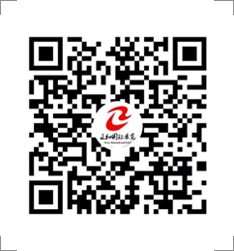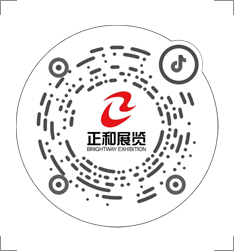Details
New foreign trade regulations in October, please pay attention
10-08
1. Release of "Operational Guidelines for Export Tax Refunds (Exemptions) for Cross-border E-commerce Overseas Warehouses"
The State Taxation Administration's Goods and Services Tax Department recently organized the compilation of "Operational Guidelines for Export Tax Refunds (Exemptions) for Cross-border E-commerce Overseas Warehouses" (hereinafter referred to as the "Guidelines"), providing detailed tax administration guidance for cross-border e-commerce overseas warehouse enterprises, helping enterprises to thoroughly and accurately understand the regulations of export tax refund (exemption) policies, and skillfully master the operation procedures for handling export tax refund (exemption) business.
2. State Council Customs Tariff Commission suspends the implementation of zero tariff policy for imports of some agricultural products from Taiwan
The State Council Customs Tariff Commission recently issued an announcement stating that, starting from September 25, 2024, the policy of exempting from import tariffs 34 agricultural products originating in Taiwan, including fresh fruits, vegetables, and aquatic products, will be suspended. Import tariffs on relevant agricultural products will be implemented in accordance with current regulations.
3. General Administration of Customs launches pilot program for rail-road combined transport of export goods
In order to support the high-quality development of multimodal transport, adapt to the adjustment and optimization of modern logistics and transportation structure, and improve the level of customs clearance facilitation for international multimodal transport goods, in accordance with the "Customs Law of the People's Republic of China" and the "Regulations of the General Administration of Customs of the People's Republic of China on the Supervision of Transit Goods" (promulgated by Order No. 89 of the General Administration of Customs, amended by Order No. 240 of the General Administration of Customs, hereinafter referred to as the "Regulations on the Supervision of Transit Goods"), the General Administration of Customs has decided to launch a pilot program for the rail-road combined transport business model for export goods.
4. Codex Alimentarius Commission releases requirements for import and export food inspection and certification systems
From September 16 to 20, 2024, the Codex Alimentarius Commission (CAC) held the 27th meeting of the Committee on Import and Export Inspection and Certification (CCFICS 27) in Australia, which released the "Requirements for Import and Export Food Inspection and Certification Systems".
The main contents of the "Requirements" include: revising the "Principles and Guidelines for Remote Audits and Inspections under the Relevant Regulatory Framework"; publishing the opinions of the Food and Agriculture Organization of the United Nations, the World Health Organization, and other international organizations on the import and export food inspection and certification system (CCFICS), emphasizing the need to strengthen capacity building in developing countries and attach importance to food control system assessment; consolidating the Codex Alimentarius Commission's guidelines on food system equivalence, requiring attention to the implementation of the "Guidelines for the Recognition and Maintenance of Equivalence of National Food Control Systems"; implementing the "Guidelines for the Prevention and Control of Food Fraud"; revising and updating the "Principles of Traceability/Product Tracking in Food Inspection and Certification Systems"; publishing the "Guidelines for the Application Mechanism for Refusal of Food Imports"; publishing the "Regulations on the Standardization of Sanitary Requirements"; reviewing and updating new developments in global food work, revising the "Principles and Guidelines for Information Exchange between Relevant Importing and Exporting Countries" to promote food trade and strengthen the digitalization of national food control systems, and so on.
5. The United States significantly increases tariffs on products from China, including electric vehicles
A decision released by the Office of the United States Trade Representative shows that the United States will impose a 100% import tariff on Chinese-made electric vehicles, a 50% tariff on Chinese-made solar cells and semiconductors, and a 25% tariff on Chinese-made steel, aluminum, electric vehicle batteries, key minerals, and components.
Specifically, the tariffs on Chinese electric vehicles, lithium-ion batteries for electric vehicles, key minerals, and components will take effect on September 27 this year; the 50% tariff on semiconductors will take effect in 2025, and this tariff scope has added two categories, namely silicon wafers and polysilicon for solar panels; the tariffs on lithium-ion batteries, key minerals, and components for other equipment and uses will take effect on January 1, 2026.
6. The United States adjusts its "de minimis" policy
On September 13, the US government formally announced that it would take action to curb the misuse of the "de minimis" policy, a move aimed at maintaining fair trade and tax order. Specific adjustments include canceling the tax exemption for sensitive products, involving 70% of clothing and textiles imported from China, and canceling the tax exemption for products that may be subject to additional tariffs under Section 301, 232, or 201. This move undoubtedly heralds a "profound transformation" for leading enterprises in China's cross-border e-commerce industry.
7. The United States adds aluminum, silicon, PVC, and other products from China to the list of forced/child labor
The US Department of Labor has added 72 items and removed 4 items to its list of foreign-made goods produced with child and/or forced labor that violate international standards. After these adjustments, the so-called TVPRA list now includes 204 goods from 82 countries and regions.
The newly added goods include aluminum, sodium hydroxide, jujubes, industrial silicon, polyvinyl chloride, and squid from China; Chinese electrolytic copper products and lithium-ion batteries allegedly produced with child labor in Congo; automotive aluminum parts allegedly made with aluminum produced with forced labor in China; and cotton clothing, textiles, and yarn/thread allegedly made with cotton produced with forced labor in China. In addition, the updated list also includes Vietnamese cotton clothing allegedly made with cotton produced with forced labor in China.
8. Canada imposes additional tariffs on electric vehicles and other products from China
The Canadian government announced that, starting October 1 of this year, it will impose a 100% additional tax on all Chinese-made electric vehicles, including electric and some hybrid passenger cars, trucks, buses, and vans. This 100% additional tax will be levied in addition to the current 6.1% tariff that Canada imposes on electric vehicles from China.
In addition, the Canadian government plans to impose a 25% additional tariff on steel and aluminum products imported from China starting October 15 this year. Canada says one of the purposes of this move is to prevent trade diversion resulting from recent actions by Canada's trading partners.
9. Turkey adopts new regulations for imported electric vehicles
On September 20, the Turkish Ministry of Trade set stringent conditions for plug-in hybrid vehicles imported from countries such as China, requiring importers to have 20 authorized service shops at 7 different locations within the country. This regulation will take effect after 30 days. This is another move by Turkey after restricting electric vehicle imports in June this year. Analysts say that currently no importer can meet these conditions, which will put pressure on Chinese automakers.
Turkey has previously imposed high tariffs on imported electric vehicles.
10. South Korea mandates disclosure of electric vehicle battery information
On September 6, 2024, the South Korean government decided to mandate the disclosure of electric vehicle battery information and implement a series of other measures to alleviate growing concerns about electric vehicle fires.
According to the government's plan, the electric vehicle battery certification system, originally scheduled to take effect next February, will be piloted in October, meaning the government will conduct safety checks on batteries before producing domestic and foreign electric vehicles. In addition to the currently required battery capacity, rated voltage, and maximum output, electric vehicle manufacturers will also need to disclose key information about the battery, including the battery brand and main components.
During routine inspections of electric vehicles, inspection items will be increased to include battery voltage, battery temperature, charging level, etc., and inspection stations will be equipped with corresponding equipment and infrastructure as soon as possible. The responsibility of electric vehicle manufacturers and charging companies will also be strengthened by excluding manufacturers without liability insurance from government subsidies and promoting legislation to mandate liability insurance for electric vehicle charging companies.
At the same time, the government will update the Battery Management System (BMS), which can detect and issue battery status warnings in real time, and increase its use among drivers to better detect fire risks in advance.
11. South Korea mandates HACCP certification for some imported foods
Recently, the Ministry of Food and Drug Safety (MFDS) of South Korea announced that it requires mandatory HACCP certification for some imported foods. From October 1, 2024, all overseas manufacturers of Napa cabbage kimchi will need to obtain HACCP certification for imported food in order to import and clear customs. (Kimchi mainly refers to pickled vegetables with Napa cabbage as the main ingredient, mixed with various seasonings, and fermented or processed.)
12. Russia bans the sale of unlabeled light industrial goods
A Russian government amendment banning the sale of unlabeled light industrial products will come into effect on September 15. The new measures cover product types including trousers, tops, skirts, dresses, track jackets, women's blouses and shirts, sportswear and ski suits, coats, shawls, scarves and ties, and some other clothing accessories. Before that, if these products were produced or imported into Russia before April 1, 2024, they are allowed to circulate and exit circulation. From that day on, mandatory labeling will be implemented for light industrial products.
13. Russia extends simplified certification period for imported products to 2025
The Russian government has decided to extend the validity period of the simplified certification procedure for imported and domestically circulated products that comply with technical regulations and national standards to September 1, 2025, aiming to continue to reduce the burden on enterprises and reduce the risk of substandard products entering the market.
It is understood that since March 2022, goods can provide declarations of conformity based on their own evidence through a simplified procedure, avoiding lengthy laboratory tests, giving enterprises six months to confirm product compliance. Against the backdrop of sanctions, this measure has proven effective, so the government has decided to extend its implementation period to continuously promote trade facilitation and healthy market development.
14. The GCC imposes anti-dumping duties on Chinese switches, sockets, etc.
On August 20, the Technical Secretariat of the Anti-Dumping and Countervailing Measures of the Gulf Cooperation Council (GCC) issued an announcement making a final anti-dumping ruling on electrical connectors, switches, sockets, and plugs with a voltage not exceeding 1000 volts imported from China, and decided to impose anti-dumping duties of 11.3% to 42% on the products involved based on the cost, insurance, and freight (CIF) price from September 26, 2024, with a validity period of five years. The GCC unified tariff codes for the products involved are 853669, 853650, 85444291, and 85444221.
15. India imposes additional tariffs on some steel products from China and Vietnam
An order from the Indian Ministry of Finance on September 10 shows that India will impose tariffs of 12% to 30% on some steel products imported from China and Vietnam “to protect and promote the local industry”. Reuters points out that this means that India will impose taxes on welded stainless steel pipes exported from China, the world's largest steel producer, and Vietnam for the next five years.
16. Brazil raises import tariffs on 30 chemical products
In response to the request of the Brazilian Chemical Products Industry Association (ABIQUIM), on September 18, the Brazilian Foreign Trade Commission approved raising import taxes on 30 chemical products from the original minimum tariff rate of 7.6% to 20%, with a validity period of one year.
According to previous media reports, the association released data showing that the idle rate of domestic petrochemical plants reached a record high of 58% in May this year. To boost the local industry, the association requested the government to raise import tariffs on 65 chemical products. Although the Brazilian government has only taken measures on less than half of the chemical products, the association believes that the effect will be “immediate”, and domestic products are expected to recover to 80% in the next few years.
17. Argentina removes technical barriers to bicycle imports
Argentina's El Cronista reported on September 12 that Argentina's Undersecretariat of Industry and Trade issued Resolution No. 274/2024 in the government's Official Gazette on September 12, abolishing the relevant technical regulations for bicycle imports and canceling the certification of relevant product manufacturers and the product sample testing procedures. The Argentine government hopes to eliminate foreign trade technical barriers, simplify bicycle import procedures, stimulate the vitality of free competition in the Argentine domestic market, and promote a significant drop in prices in the Argentine domestic bicycle market.
18. Iraq strengthens scrutiny of electronic equipment imports
In mid-September, a large-scale pager explosion occurred in Lebanon, and Iraq stated that it intends to strengthen border management to avoid any “infiltration” or security risks, especially risks related to the import of “electronic equipment”. According to the published communiqué, “the Council of Ministers called on border crossings to take all necessary preventive measures to avoid any potential infiltration”. The communiqué also called for “strict security checks on imported products, especially electronic equipment, and ensuring contracts are signed with reputable companies”.
Latest News





